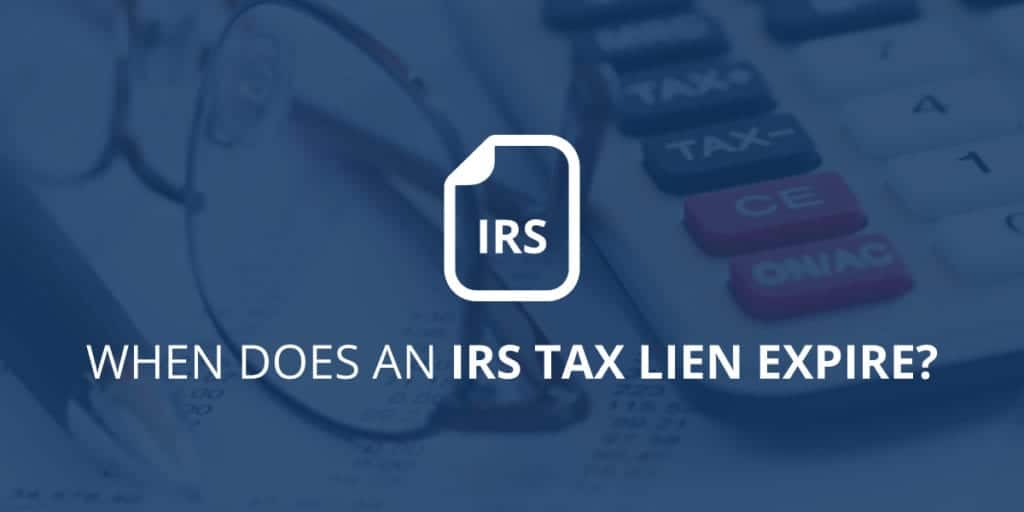
If you fail to pay your federal income taxes (or what the Internal Revenue Service (IRS) says you owe), the government can use a variety of different tools to collect your tax debt. One of these tools is an IRS tax lien, which establishes a claim against your property. If you attempt to sell the property that is subject to an IRS tax lien, the IRS can step in and use the sales proceeds to satisfy your debt. IRS tax liens can also create problems when it comes to securing credit and dealing with other financial matters. For these reasons, IRS tax liens often serve as substantial incentives for taxpayers to pay what they owe as quickly as possible.
IRS Tax Liens: Expiration Without Payment of Tax Debt
If you have failed to pay your tax debt after receiving a Notice and Demand for Payment from the IRS and are now facing a federal tax lien, you may be wondering when the lien will expire. At a minimum, IRS tax liens last for 10 years. Under Section 6502 of the Internal Revenue Code (IRC), IRS tax liens can extend beyond 10 years if:
- The statute of limitations is extended in connection with the execution of an installment agreement for payment of the tax debt;
- The taxpayer files an Offer in Compromise; An agreement to release a federal tax levy is accompanied by an agreement to extend the statute of limitations for enforcement of a federal tax lien; or
- The IRS refiles the lien within the required refiling period.
Additionally, under Section 6503 of the IRC, the period of the collection can be suspended due to events including:
- The issuance of a notice of deficiency;
- The taxpayer’s assets being seized by a court;
- The taxpayer residing outside of the United States for six months or longer;
- The wrongful seizure of the taxpayer’s property;
- The wrongful placement of a lien on the taxpayer’s property; and,
- The taxpayer filing for bankruptcy.
IRS Tax Liens: Release, Withdrawal, Discharge, and Subordination
Due to the duration that IRS tax liens remain enforceable, most taxpayers will benefit from seeking some form of relief prior to the date of expiration. The options that are available to individual taxpayers will depend on their current financial circumstances, the amount of their tax debt, and various other factors. Some potential ways to obtain relief from an IRS tax lien include:
- Release – If you are able to pay what you owe in a lump sum, pay your debt pursuant to an installment agreement, or negotiate an Offer in Compromise, then satisfying your federal tax liability will result in your IRS tax lien being released prior to its date of expiration.
- Withdrawal – In certain circumstances, it will be possible to convince the IRS that a federal tax lien should be withdrawn. Grounds for seeking withdrawal of an IRS tax lien include the lien being improperly filed, entering into a Direct Debit Installment Agreement, and demonstrating that withdrawal of the lien will allow for easier collection of the tax debt.
- Discharge – There are also circumstances in which it may be possible to have individual assets discharged from an IRS tax lien. This allows the asset to be sold without interference from the IRS.
- Subordination – Taxpayers can also seek to have their IRS tax liens subordinated to the interests of other creditors. This means that the IRS agrees to allow another creditor to “cut in line.” A common example of this is when a taxpayer refinances a property. In some circumstances, the IRS may allow the refinance lender’s secured interest (which attaches to the property at the time of refinancing), to have priority to the IRS tax lien which attached to the property before the refinance. While this does not have the same broad effect as a full release, it can still provide much-needed relief in many cases.
Speak with a Southern California Tax Attorney about Your IRS Tax Lien for Free
Do you need help getting out from under an IRS tax lien? Are you concerned that the IRS may be preparing to impose a lien or levy your property? To speak with one of our highly-experienced Southern California tax attorneys in confidence, call 619-595-1655 or request a free consultation online now.

Leave a Reply